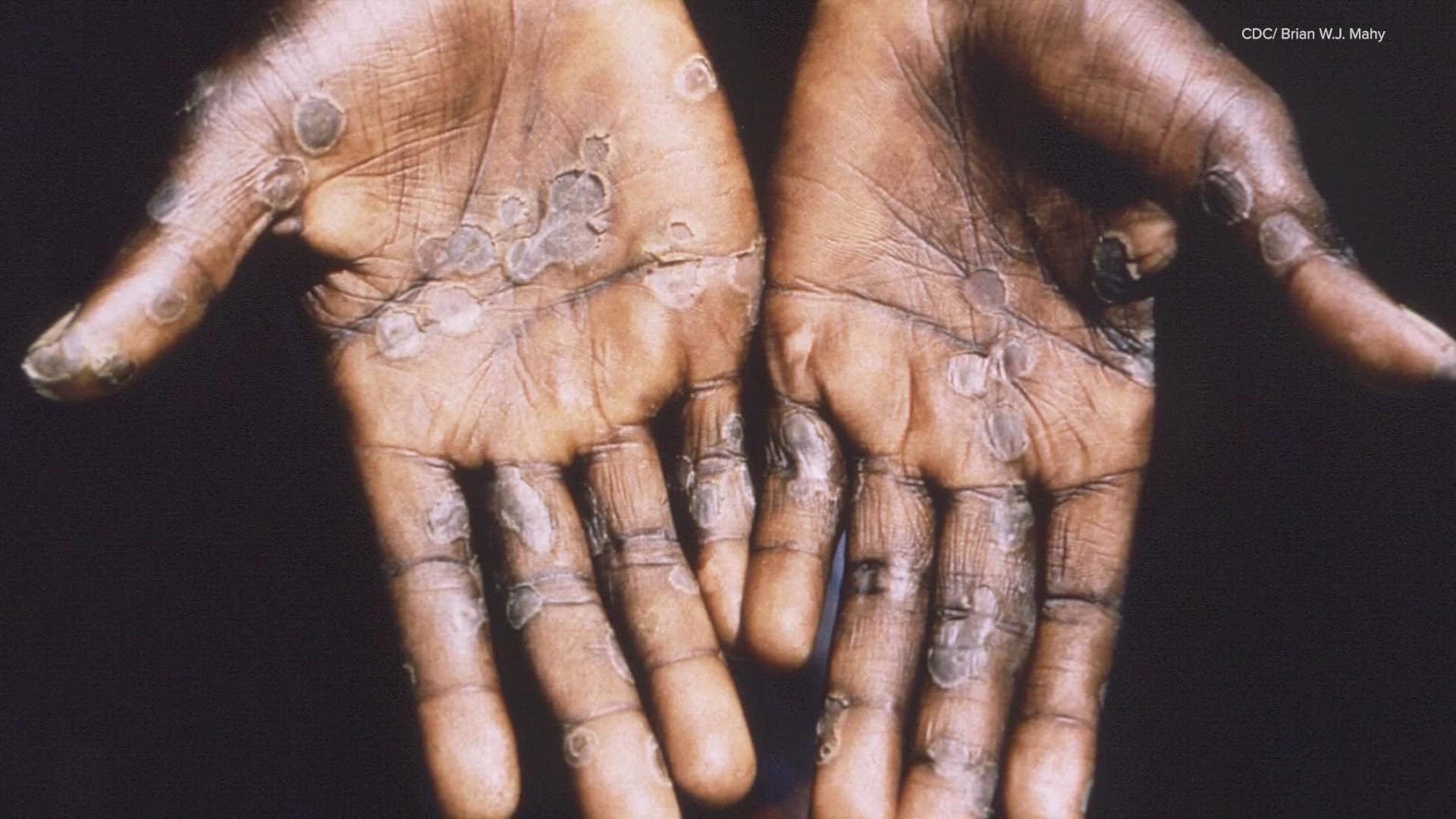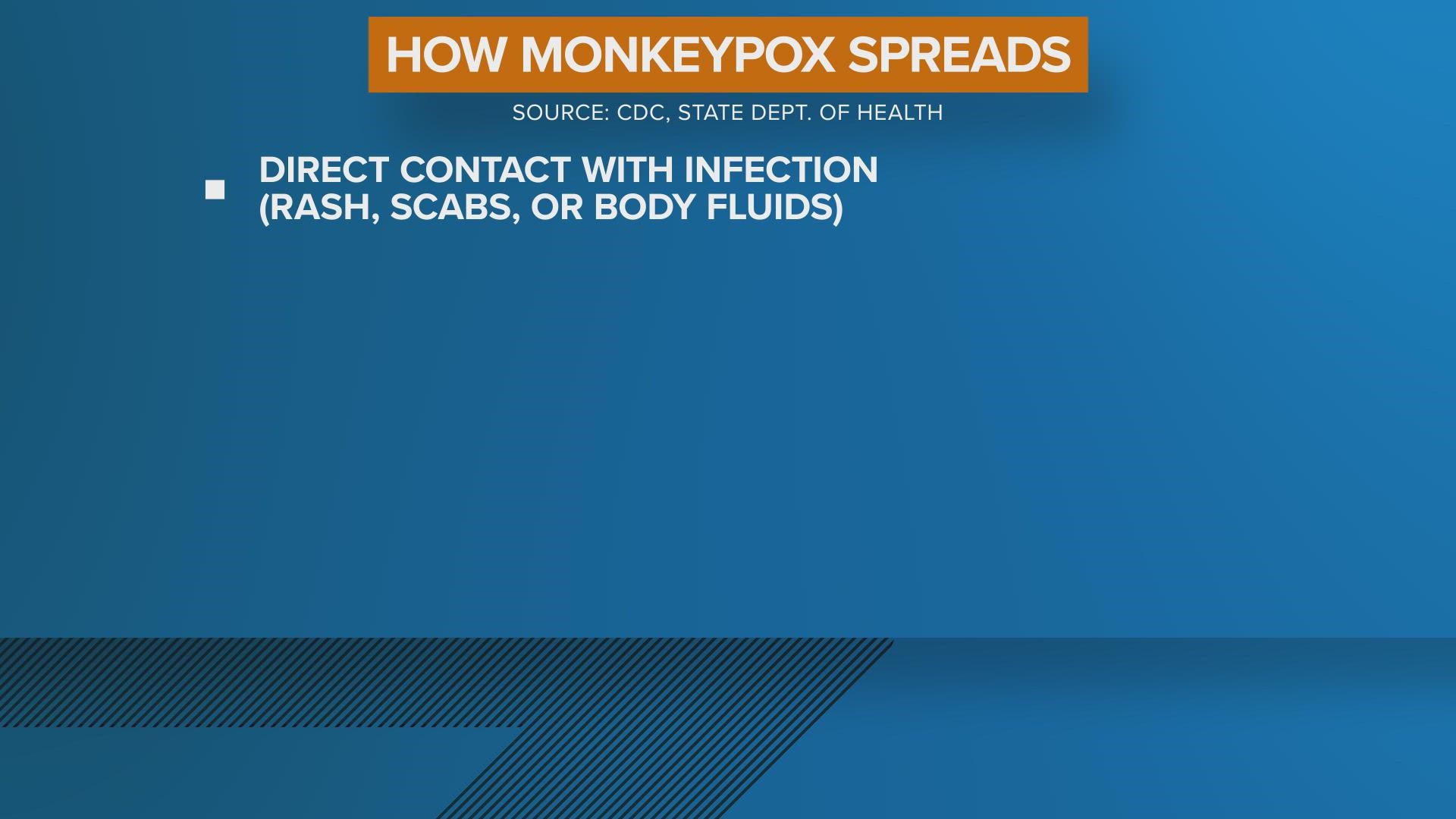NEW ORLEANS — Louisiana now has it's first case of Monkeypox and it's right here in the New Orleans area.
The state health department says it's only been found in one person.
According to health experts Monkeypox is similar to small pox. The first human case was recorded in 1970. As of right now, there have been more than 600 cases reported in America since this outbreak began. However, experts say it's not as contagious as COVID-19.
Professor of Medicine at Tulane University, Dr. David Mushatt says the blister-like rash is the most obvious sign you could have the virus.
"It causes infections in humans and has been seen for decades in parts of Africa," Dr. Mushatt said.
As of Thursday there are 37 states and territories with reported Monkeypox cases. According to the CDC symptoms can include, fever, head, muscle and backaches and swollen lymph nodes.
Dr. Mushatt says the blister like rash is the most obvious sign you could have the virus, saying, "It can look like herpes, it can look like shingles."
The CDC says it spreads through person-to-person contact, which could include coming in contact with the infectious rash, respiratory secretions and touching items that the infection touched such as clothing or linens.
Chief of Infectious Diseases at LSU Dr. Julio Figueroa says there's a vaccine for those who've come into close contact with an infected person, but right now the vaccine is in short supply.
"Once you start getting sick you have the ability to have the virus and transmit," Dr. Figueroa said. "The lesions themselves can be infectious, it appears up until they are completely healed."
He warned those with questions to call the health department, saying, "If there is a suspicion they need to contact the office of public health, and then they will take them through the sequence of what they need to do."
Both experts say anyone who comes into close contact with someone who has symptoms of Monkeypox are at highest risk of infection. Both agreeing this isn't a time to panic, instead a time to be vigilant. If you're unsure about any symptom you're having, call your healthcare provider.


